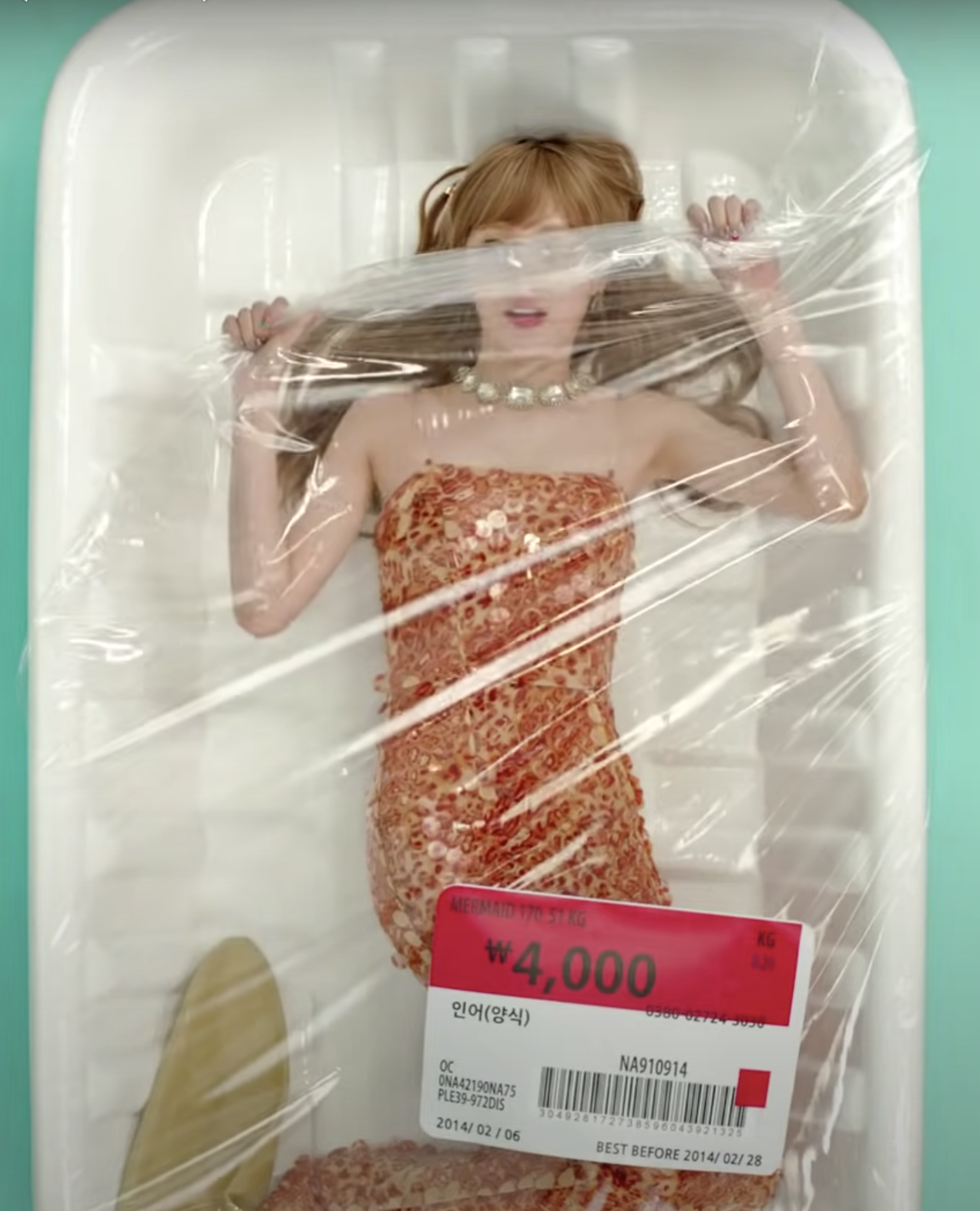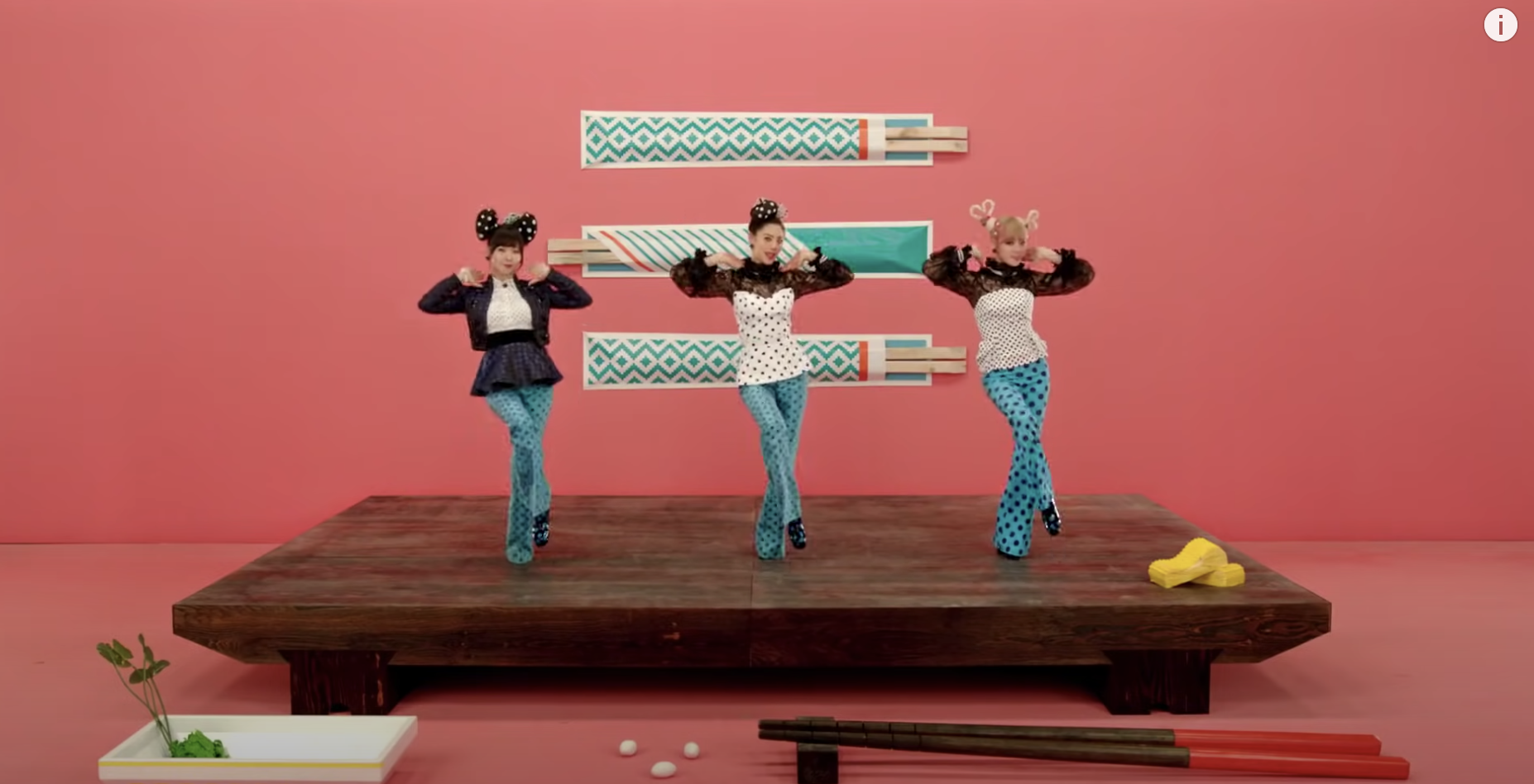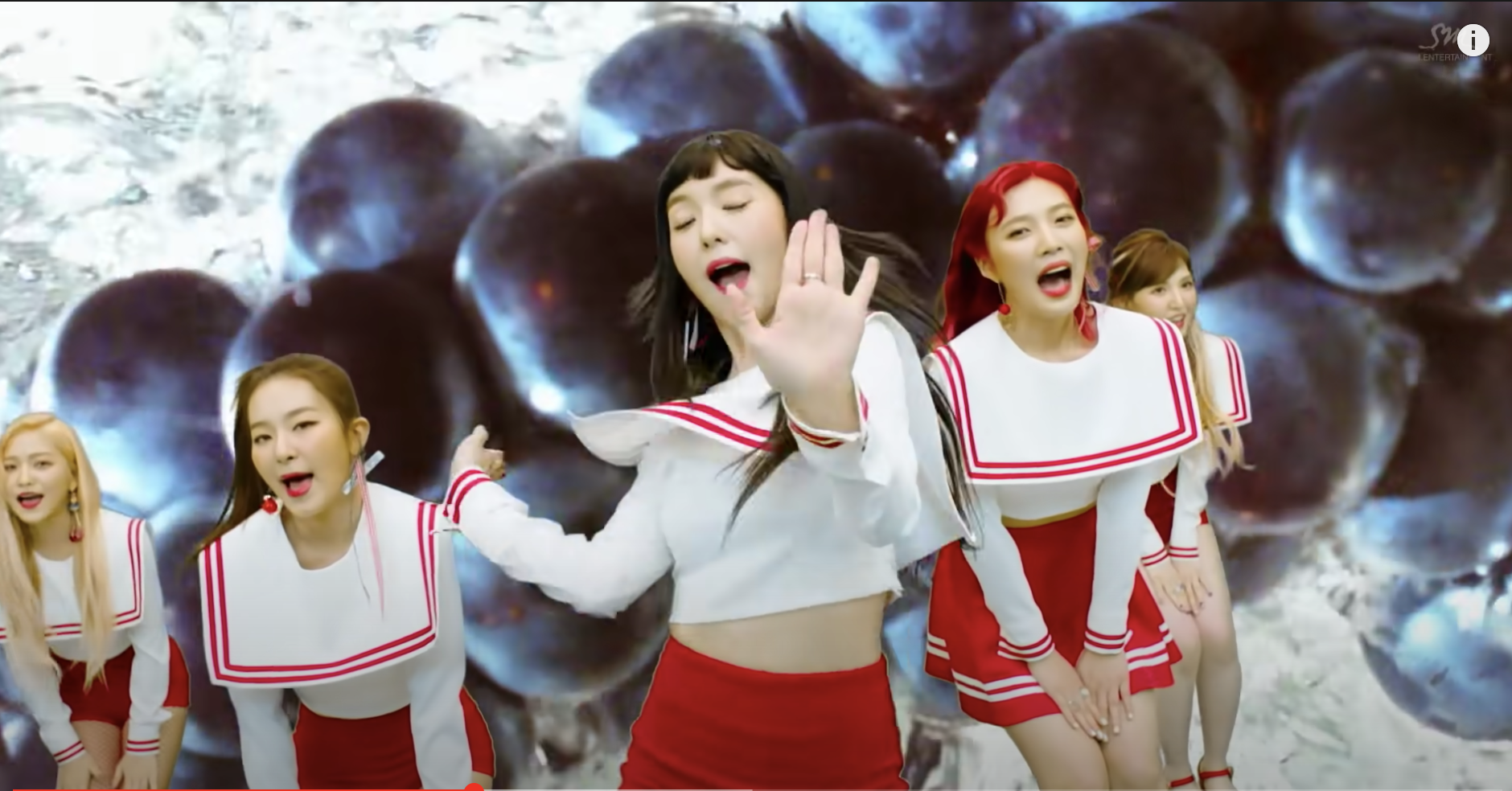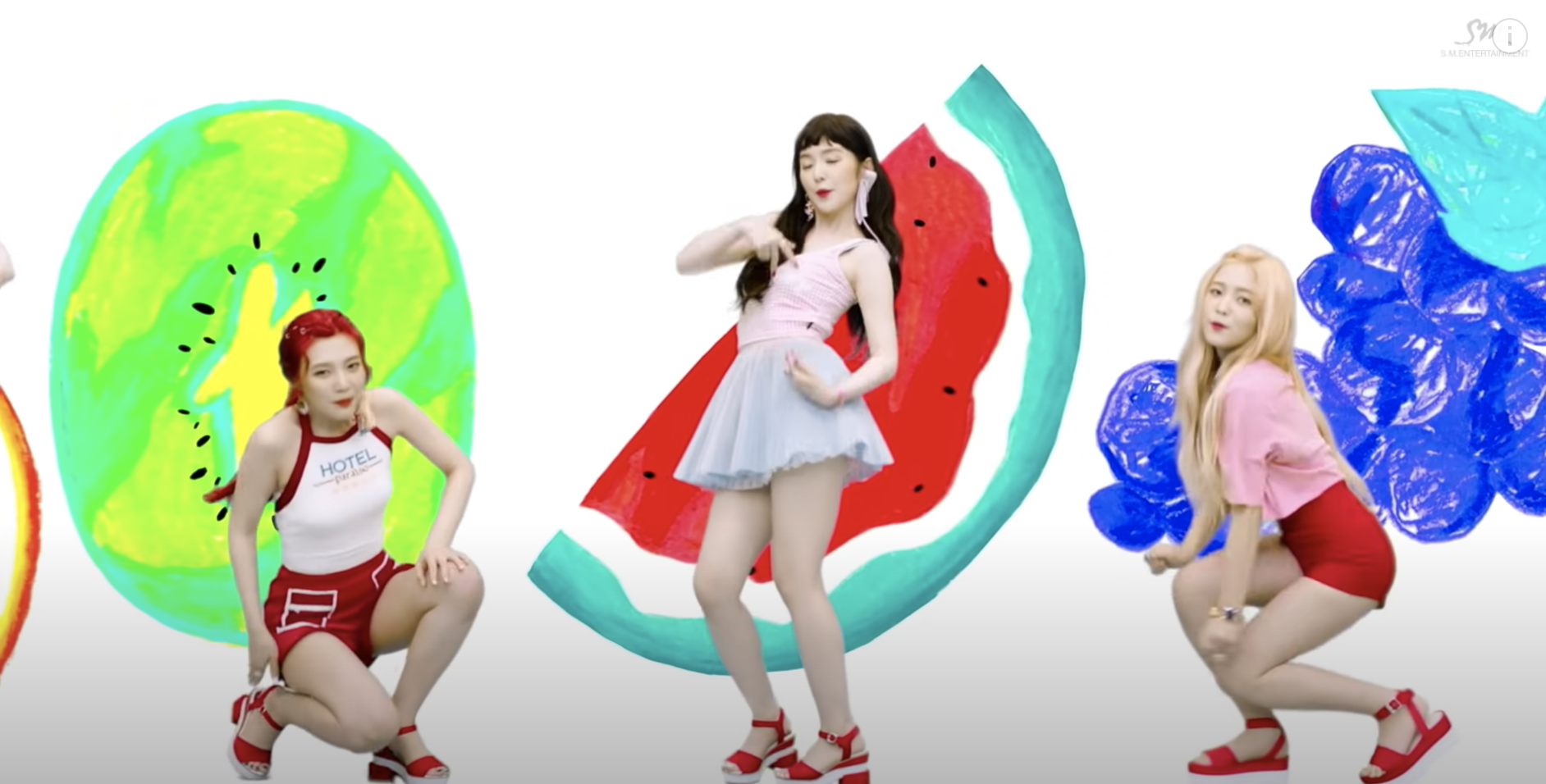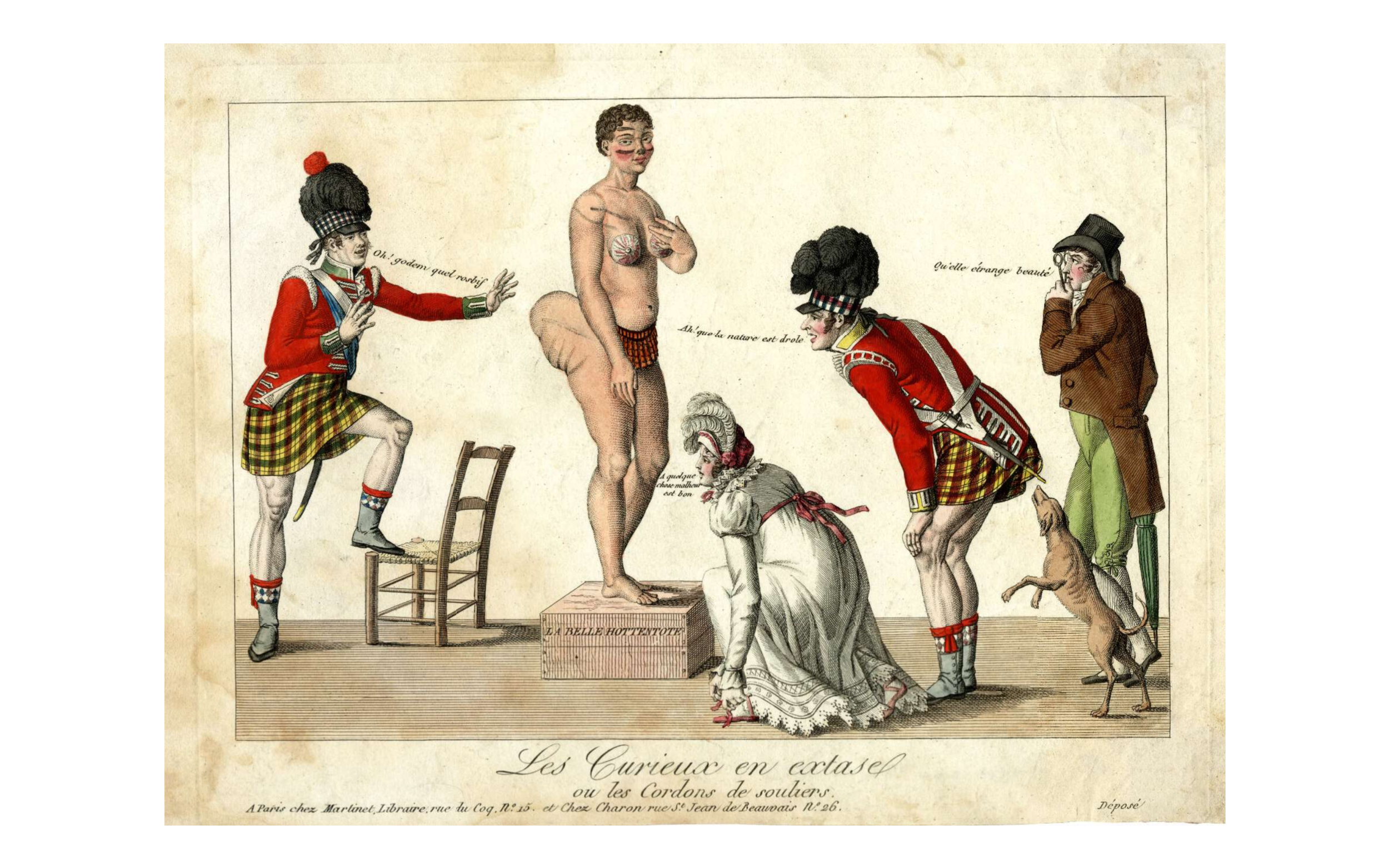On food
A man I once loved crushed an orange with his mouth and said he thought of me. His teeth, sharp white marble ripping through thousands of membranes, some matte to the touch and others, so preciously delicate and acidic tight, I imagine the poor fruit bursting in the dark cavern of his mouth, the flesh of the harvest becoming a part of him, the animal, as the citrus sparks against his searching tongue, and the juice of the thing dripping down his beautiful hands, leaving a mark along its self-destructive trail and something about all this being a metaphor for me. Oh how I loved your hands. What is it about our desires that constantly smuggle in through our hungry mouths, the language of consumption to articulate those desires? I can’t say I ever wanted to eat you. But your love cannibalized me. Sit out my body.
I want to make a meal out of you. The venus hottentot, I dont know what to say about you the idea, the construction, the site of black feminist intervention, and the ontological stake upon which this possibilility was ever made possible: “Saartje Baartman” [or is it Sarah Bartman] who even are you. Again I don't know. But this is what he thought he knew when he saw. An althusserian interpellation:
The frenchman cartoon in the Les Curieux en extase ou les cordons de soulliers, exclaims “What roast beef!”
The associative jump between the posterior of a black woman's body and an english food stuff isn't somehow inconceivable and yet look at it for too long and you might write a piece like this. The flesh becomes a metonym that relays between fact, abstraction, and beef. The melanin of her skin, like a giant cognitive road sign pointing towards our memory’s recall of the color we associate with the roast, its all there, this road from the thing to the idea, to the language: does he want to eat her? Never mind the conceptual messiness between likening human flesh to animalized meat (the slippage into the bestial being nonetheless an important heuristic to acknowledge), I want to take serious the descriptive remark nonetheless. There is something about the idea that forks the body into place and runs a dinner knife against the grain of the human fibers, shaping into something so tantalizing, a square of an idea stuck to the tines of the utensil, wanting so dearly to be devoured by our mind’s mouth. This is injury no doubt. But such an observation is redundant for someone like me. When have I never not punished myself for wanting? That's the most french thing about me.
I think Stein was in Paris when she wrote tender buttons. She began the second movement of the modernist masterpiece with an entry on Roast Beef. Trying to close read it now, I am made immediately merciful to the absurdity of taking any language at face value, hers in particular. Venus is not roast beef. But, “it is so easy to exchange meaning, it is so easy to see the difference. The difference is that a plain resource is not entangled with thickness and it does not mean that thickness shows such cutting, it does mean that a meadow is useful and a cow absurd. It does not mean that there are tears, it does not mean that exudation is cumbersome, it means no more than a memory, a choice and a reëstablishment, it means more than any escape from a surrounding extra. All the time that there is use there is use and any time there is a surface there is a surface.” My god the surface. The dream of an edible surface or a surface that runs so deep, it is the whole. Have you heard a better word for race? Skin.
There is a prolific tradition of writers using tender buttons as a fulcrum to show their intellectual prowess. Make sense of something apparently nonsensical and you have demonstrated your genius, that being the idea I suppose. Isn't that why anyone writes about love or trees? You’ll find that scholars dovetail into two major camps when attempting this exercise: 1) formalist and 2) meaning makers. The former, I think have the best chance of throwing at dart into the field of normative facticity and hitting the mark; the general consensus being, when reading all avant production, an attention to form and materiality, not just what it is, but how it is and in relation to the molecular, this is a good reading practice. It helps a lot. But it is the meaning makers who are just purely more fun. Suddenly the text becomes a feminst credo, a statement on prurient desires, a catalogue of turn of the century womanist domesticity, LESBIan, my gosh there is so much desire in the unknown. Today I want to be a meaning questioner: what is it about the edible that becomes a resource for abstraction into some imprecise and yet strangely satisfying linguistic capture? Further, given its apparent ubiquity, the sheer quantity of dining that happens in any given moment, my mother’s curtailing of a fight with the question have you eaten yet, the pandemic and its progress being read against the rubric of how much a restaurant can reopen, normalcy itself is a measure of how we can eat the way we want to eat, so given all this, how is it that stuffing our faces has not become one of the dominant interests of modern literature along with utopia, love, guardians and nature?
The point is that if a book that writes about roast beef is also the same book that achieves a breakthrough in modernisms rhetorical aesthetic, and venus change the semiotic potential of the black female body within a larger visual cultural industry, musten we at least acknowledge that food does something to push us into an unraveling conceptual teleology? “Did you know food is turned into energy?” asks Andy Dwyer.
A critical energy of desire! Wong kar wai knew this. A recurring narrative device he will use is the dining. Not that this is unique to him, but his formula is oddly predictable and rich in affect, which leads to a writer saying something like I want to draw attention to it. The crowded shared kitchen, made singular in the filmic focus on just one half of the lover pair the movie stalks, often a diegetic fusing of melody and exogeneous noise which is actually indigenous to the scene itself since it is about the kitchen and that separate noise is just other people cooking in that damn kitchen, the food becomes performative in an embodied form. It is literally gestural and expressive in the way dance is about making organic geometries. The prepared meal is a gift, demonstrative of some occluded phatic message. I love you.
Maybe this is what my lover meant.
Kpop is about the dream of an edible human and the infinitely indexical capacities of the yellow body form when placed in surface contact with food.
We had a lot of fun at the picnic!

